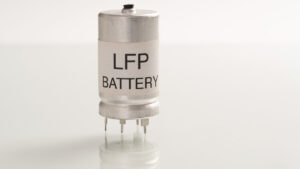Propell Holdings continues pathway to near-term profitability
Q2 FY24 saw strong growth in average loan size, up 50% on PCP to $36k
Early arrears on loans written in Q1 and Q2 FY24 cohort at lows of sub-1%
Focused on providing finance to SMEs, Propell (ASX:PHL) is eyeing profitability after what has been a tough environment for Aussie and global fintechs with CEO Michael Davidson saying he’s “excited at this point” about the company’s growth prospects.
The fintech sector experienced rapid growth during the Covid-19 pandemic, fuelled by increased e-commerce spending and a shift towards digital payments.
According to FinTech Australia, there are now more than 800 fintech companies currently in operation, soaring from a $250 million industry in 2015 to a $45 billion industry in 2023.
However, the industry has not been without its challenges with surging interest rates, increased cost-of-living pressures, and the prospect of mounting bad debts seeing fintechs take a hammering in recent years.
PHL, which with a market cap of ~$1.56 million – not much more than the median price of a Sydney house – saw its share price collapse from more than 20 cents after its oversubscribed IPO in April 2021 to a low of 1 cent in January 2024.
PHL provides finance to SMEs with their app-enabling, near-instant loan approvals, making it fast and easy for small businesses to access the capital they need to run their business.
CEO Michael Davidson says the expectations when PHL listed was for massive amounts of growth.
“We went down that path and acquired customers as rapidly as possible, spending enormous amounts chasing those customers along with every other fintech,” he says.
But, contrary to most peers, PHL saw “the writing on the wall” early in 2022 that lending was going to tighten with difficulty in the economy, small business and capital markets, and so pivoted its focus.
“It’s been an 18-month journey to narrow our focus on products that customers demand but are also commercially viable for us and, at the same time, removing a significant amount of costs from the business,” Davidson says.
“I’m excited at this point because we are essentially coming out of that journey into a very low-cost, quite high margin and now very scalable business that is well-capitalised through recent capital raises. ”
Q2 FY24 loan size up 50% on PCP
In its recent Q2 FY24 trading update, PHL says it continued its pathway to near-term profitability by maintaining reduced operating costs with no loss of capability.
The quarter saw strong growth in average loan size, up 50% on PCP to $36k and weighted average interest rate up 23% on PCP to 3.1% per month.
During Q2 FY24, PHL continued to improve margins on lending activity, with its market competitive borrowing cost of 11.5% and weighted average customer pricing of 3.1% per month, which yields greater than 65% interest revenue per annum.
Operating costs were down 20% on PCP to $647k with underlying operating costs down 28% on PCP and down 1% QOQ to $587k.
Net cash used in operating activities was down 32% on PCP, excluding one-off costs.
Davidson said “it hasn’t been an easy ride” for the company, with cost-cutting measures including job losses.
“But when you are burning cash, you always are under pressure as you approach the cliff edge,” he says.
“That’s when your decision-making goes awry, and we wanted to free ourselves from that.
“I am really proud of how we have moved through this period.”
Strong loan book with zero arrears
Furthermore, PHL reported that early arrears on loans written in the Q1 and Q2 FY24 cohort is below 1%, which Davidson says is an outstanding result in the current economic climate.
While PHL’s more rigorous credit assessment criteria have improved arrears, it has also resulted in a higher rate of declined applications and therefore slower loan book growth during the period.
However, Davidson says this prudent approach to loan book growth is a more sustainable approach in the current lending climate that delivers superior commercial outcomes.
‘Don’t die, get to breakeven’
Davidson says to get to profitability PHL needed a loan book of $6.5-7.5 million, and is seeking additional funds to scale.
PHL continued discussions with wholesale funding providers as it seeks to increase its current wholesale facility limit of $7.5 million to facilitate customer lending and revenue growth.
“If you think about our journey, there are two stages. The first, get to breakeven and early stage profitability,” he says.
“Stage two is to profitably accelerate towards the vision we’ve held since launching Propell, to democratise access to financial products for Australian SMEs.
“Essentially, we already have the pieces in place to get us to that first goal of breakeven profitability.”
Davidson says due to uncertainty of the SME market, wholesale debt tightened in 2022 and 2023.
“That is shifting now and less tight, and we expect that trend to continue,” he says.
“We also fixed our wholesale lending rate with our provider at 11.5% pre-IPO, which is now a really attractive rate, so we’ve been able to increase margins through this period as opposed of our peers who have seen decreasing margins as rates went up.”
New trade finance product
During Q2 FY24, PHL introduced a new trade finance loan facility for the renewable energy sector, experiencing its first customer drawdown in November 2023.
The funds were deployed and repaid within 30 days, yielding an annualised interest rate of 36.5%.
Davidson says the product supports SMEs in the solar, battery and inverter supply chain to manage cash flow effectively.
Leveraging the fintech’s integrated payments, real-time credit decisions, and short-term funding capabilities, the trade finance product provides a lower-risk profile compared to traditional unsecured SME lending.
The closed-loop nature enhances PHL’s involvement in financing transactions, boosting merchant and customer retention.
‘Pieces in place for us to accelerate’
In December 2023, PHL announced the successful completion of a placement to wholesale investors, including directors, of 100 million shares at 1 cent/share to raise $1 million before costs.
The following month, PHL also started undertaking a share purchase plan (SPP), also at 1 cent/share, being a 10.81% discount to the 5-day VWAP at the record date of January 22.
Eligible shareholders can apply for up to $30k worth of new shares.
“We have a large base of retail investors who have supported us since our listing and we were keen for them to get access to the raise at the same rate through an SPP,” Davidson says.
“We have gone through a difficult time but made the necessary changes and we’re now in the strongest position we’ve been in since listing, with all the pieces are in place for us to accelerate.”
The PHL share price today:
The post ‘Pieces are in place for us to accelerate’: Fintech Propell Holdings sets sights on near-term profitability appeared first on Stockhead.























+ There are no comments
Add yours